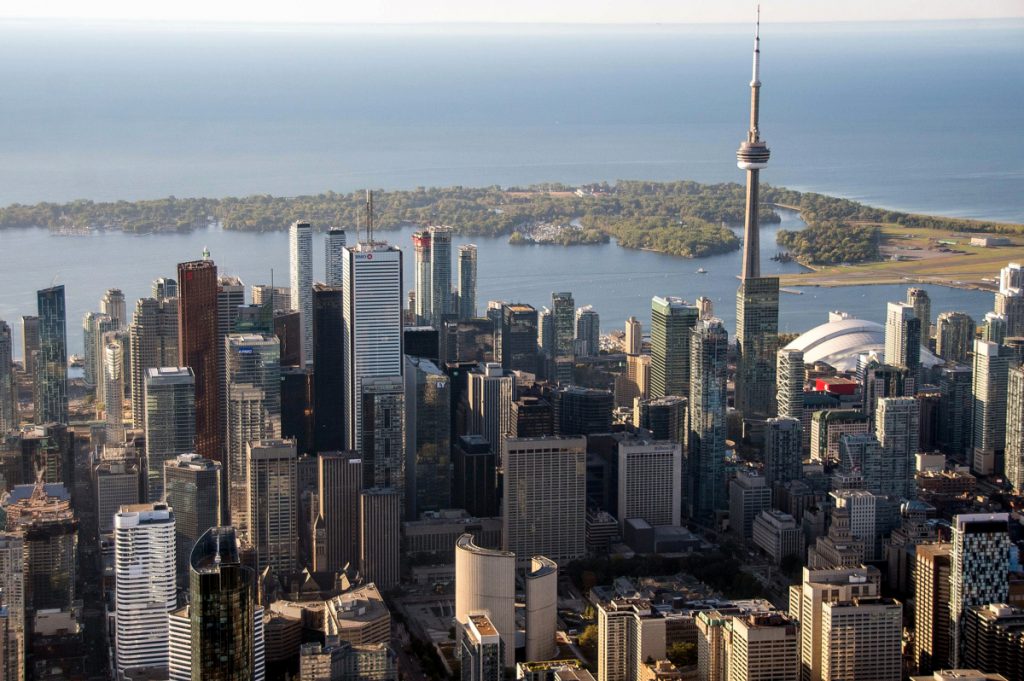
Date: 2026-03-03 Page is: DBtxt003.php txt00014686
Cities / Technology
Gamechanger ... or not?
Tech companies signing deals for ‘smart cities’ ... Transportation is one of the major issues that businesses and governments will be trying to improve through technology.
Burgess COMMENTARY
Peter Burgess
NATION & WORLD ...
Tech companies signing deals for ‘smart cities’ ...
Transportation is one of the major issues that businesses and governments will be trying to improve through technology.

The CN Tower stands in the downtown Toronto skyline. Alphabet Inc., Google's parent company, will invest $50 million in a lakefront property that will house its Canadian headquarters.
The CN Tower stands in the downtown Toronto skyline. Alphabet Inc., Google's parent company, will invest $50 million in a lakefront property that will house its Canadian headquarters. Bloomberg/James MacDonald
Robot driven taxis and computers eliminating traffic jams may appear sooner than you think after some of the biggest technology companies picked up the pace of dealmaking to bring about “smart cities” of the future.
Thirty-five agreements were signed between technology companies and major metropolises to jointly work on projects in 2017, up from eight the previous year, according to a report from Bloomberg New Energy Finance released Wednesday. Google’s parent company Alphabet Inc. and China’s online retailer Alibaba Group Holding Ltd. were involved.
As smartphones and computers seep deeper into the fabric of everyday life, governments are looking at how they can use technology to improve life in cities while companies seek new ways to make money. About half the world’s population now lives in urban areas, a total of 4 billion people, and that proportion is likely to rise to 60 percent by 2030, according to the World Health Organization.
The world’s largest cities have the most jobs, and as more people relocate to improve their own fortunes, they’re packing into smaller spaces. Transport is emerging as a major friction point, contributing to both congestion and pollution.
“When we have congestion, when we have disruption, this interferes in the ability of cities and countries to leverage the talent they have,” said Ed Manley, a lecturer at University College London’s smart cities and urban analytics program. “Transport is fundamental to much of what we do.”
A range of solutions are emerging, from reducing the number of drivers on the roads with ride sharing to making cleaner electric vehicles:
• There were 600 million users on taxi-hailing apps such as Uber and Lyft at the end of 2017, according to the report. That service didn’t exist a few years ago.
• Cisco Systems is working with nine cities on three continents, from Las Vegas to Astana, the capital of Kazakhstan. It’s crunching numbers to try to reduce the gridlock that keeps millions of people stuck in traffic for hours each day.
Smart cities are frequently multibillion-dollar ventures. Saudi Arabia recently announced a plan to build an entirely new city it will call NEOM, which it said will be fully powered by renewable energy and have self-driving vehicles and drones at a cost of $500 billion.
Alphabet chose Toronto, Canada’s largest city, for its pilot project in October. The company is rebuilding 12 acres of underdeveloped lakefront property into a new commercial and residential area that will also house Google’s Canadian headquarters. Alphabet is currently considering what to do with the space in terms of technology and design and is preparing a plan for the project by the end of the year. It will invest $50 million.
Alibaba is focusing on digital infrastructure for its partnership with the government of Macau, a Chinese city known for its glitzy casinos and shopping malls. It’s building a smart transportation network that will link road, water and air traffic and installing cloud computing programs for the municipal government.